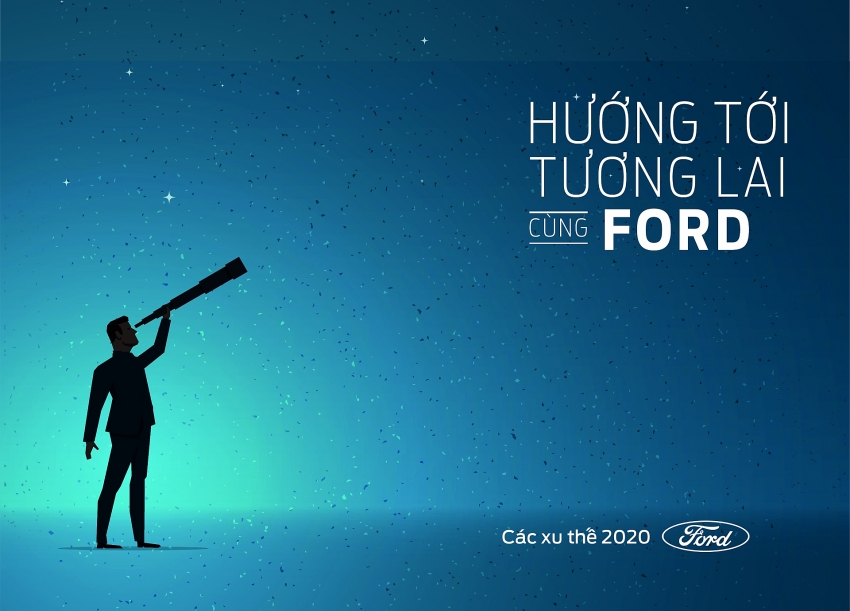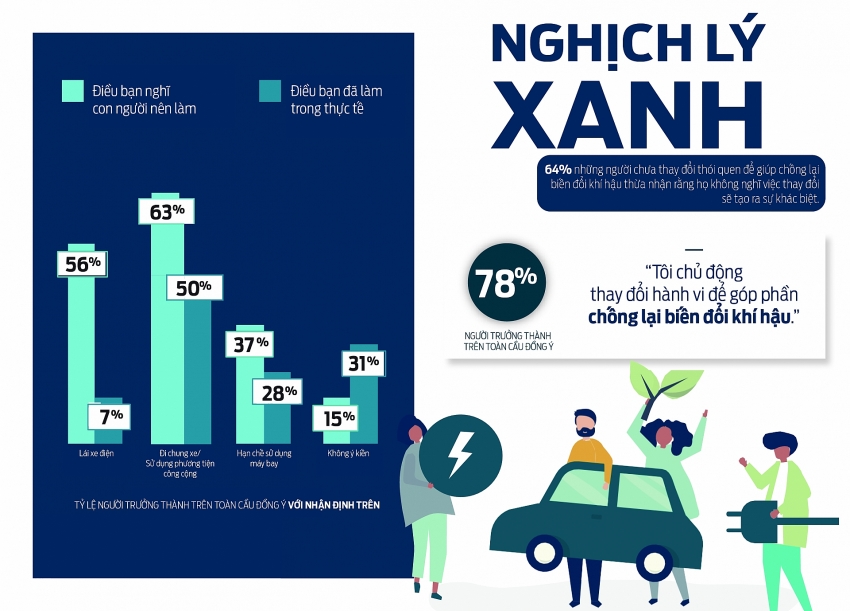Ford releases 2020 global trend report
 |
| Ford has published its Looking Further with Ford 2020 Trends Report |
In its 2020 Looking Further with Ford Trend Report, released today as the eighth annual report, Ford Motor Company identifies trust as a dominant global theme and explores how companies are earning it back.
“The rate of change globally has been on the rise – and without the trust in the institutions, brands, and peers to rely on, a majority of people are feeling extremely overwhelmed,” notes Sheryl Connelly, Ford’s Global Consumer Trends and Futuring manager.
“Consumers want to believe that companies are doing the right thing, but companies also need to give them a clear reason to do so. At Ford, we remain deeply focused on improving the lives of consumers and their communities, so we can continue to have a trusted relationship that moves us forward together,” he added.
 |
| Ford Report highlights the green paradox: more and more people are concerned about climate change, but believe they cannot make a contribution |
Surveying 14 countries across the Americas, Asia, Europe, and the Middle East, the global report suggests that people’s ability to trust peers, communities, elected officials, and businesses has a crucial impact on their day-to-day lives. Other consumer trends revealed in the report:
- All alone: Loneliness has become an epidemic of global proportions. Loneliness is particularly prevalent among young people – 62 per cent of Gen Z-ers globally agree with the statement “I feel lonely on a regular basis” and 50 per cent agree “I often feel lonely when I’m around other people.”
- Below the surface: There’s growing interest in the unseen elements of building consumer trust. Consumers want to believe that companies are doing the right thing but they need to see behind the curtain to believe it. 67 per cent of adults globally agree that “Once a brand loses my trust, there is no getting it back.”
- Call to stand: People are asking brands to move from a product-based mindset to a values-based mindset – although it does not always impact their decision to buy: 59 per cent of adults globally say they care more about purchase convenience than brand values.
- Great expectations: As internet commerce grows, so do expectations for brands. 67 per cent of adults globally agree with the statement “I have higher expectations for brands than I did in the past.”
- The green paradox: Worldwide, consumers are increasingly worried about climate change. Yet, that worry is not translating into urgency: 64 per cent of people who are not changing their behaviour to help fight climate change say they think they cannot make a difference.
- Identity matters: Conversations and language around identity are evolving – more specifically, understanding that identities are built from both visible attributes and invisible ones, like sexual identity, ancestry, religion, and more. Only 67 per cent of adults globally say “I understand the concept of gender fluidity.”
- The second time around: New upcycle companies around the globe have modernised resale shopping. The so-called re-commerce movement is on the rise for sophisticated and market-savvy shoppers, breathing new life into previously owned fashion pieces, appliances, electronics, household items, and other goods – and more and more consumers are opting in. 60 per cent of adults globally agree “I am more open to buying used goods than I was five years ago.”
What the stars mean:
★ Poor ★ ★ Promising ★★★ Good ★★★★ Very good ★★★★★ Exceptional
Related Contents
Latest News
More News
- A golden time to shine within ASEAN (February 19, 2026 | 20:22)
- Vietnam’s pivotal year for advancing sustainability (February 19, 2026 | 08:44)
- Strengthening the core role of industry and trade (February 19, 2026 | 08:35)
- Future orientations for healthcare improvements (February 19, 2026 | 08:29)
- Infrastructure orientations suitable for a new chapter (February 19, 2026 | 08:15)
- Innovation breakthroughs that can elevate the nation (February 19, 2026 | 08:08)
- ABB Robotics hosts SOMA Value Provider Conference in Vietnam (February 19, 2026 | 08:00)
- Entire financial sector steps firmly into a new spring (February 17, 2026 | 13:40)
- Digital security fundamental for better and faster decision-making (February 13, 2026 | 10:50)
- Aircraft makers urge out-the-box thinking (February 13, 2026 | 10:39)

 Tag:
Tag:






















 Mobile Version
Mobile Version